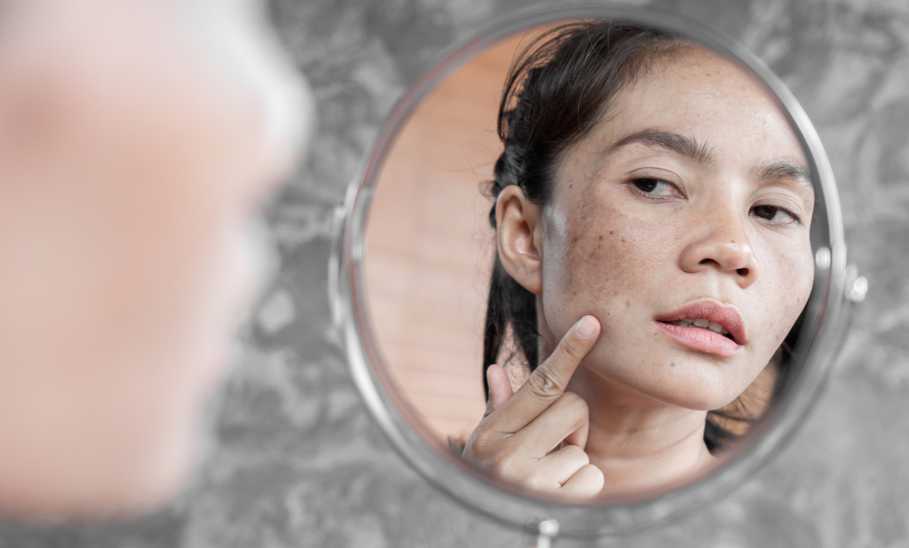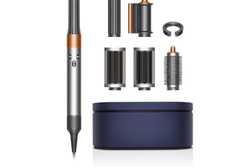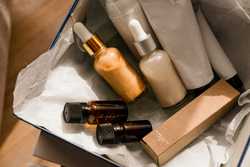How to Get Rid of or Reduce Dark Spots on Your Face

Our evaluations and opinions are not influenced by our advertising relationships, but we may earn a commission from our partners’ links. This content is created by TIME Stamped, under TIME’s direction and produced in accordance with TIME’s editorial guidelines and overseen by TIME’s editorial staff. Learn more about it.
Dark spots on your skin are common and occur for many reasons, including (but not limited to) sun damage, aging, and hormonal changes, including pregnancy, according to the American Academy of Dermatology (AAD). Even freckles, which run in my family, are a form of skin pigmentation. They differ from sunspots (also called dark spots), which occur when your skin, often due to sun damage, makes too much melanin, causing discoloration.
While most freckles get lighter with age, age spots or dark spots may not, and dark spots, also called post-inflammatory hyperpigmentation (PIH), can be annoyingly difficult to get rid of. I know firsthand—as someone with freckles and age spots—and would love to get rid of the latter.
Luckily, if you want to do the work, you can take steps to reduce or diminish them. But before you try any new lotions and potions on your skin, schedule a visit to your dermatologist if a new spot appears or if an old one is worrying you. You want to have a medical professional rule out skin cancer. Once you get the all-clear, proceed with the advice below from skincare experts.
We all know exposing your skin to the sun is damaging and can be dangerous, and sunscreen is a must for all skin types. Dark spots often occur from sun damage. The AAD states that wearing a strong, water-resistant, broad-spectrum sunscreen with an SPF of 30 or higher will help protect your skin and reduce the opportunity for sun spots to occur. To learn more about sun protection, read our guide on the best mineral sunscreens.
“Age can be a factor in hyperpigmentation because our skin provides us with much more protection when we are young,” explains Eric Casaburi, founder and CEO of Serotonin Centers. The company focuses on aging and longevity and carries a line of products that include anti-aging serums, brightening pads, dark spot cream, and sun protection against UVA/UVB, plus infrared light and heat, all of which can contribute to pigmentation.
“We have an abundance of antioxidants that control free radical damage when we're young, and that reduces as we age; the same process that causes apples to brown and cars to rust happens to our skin. Too much free radical damage leads to older-looking skin, including hyperpigmentation.”
Of course, while some dark spots can occur due to aging skin (and a host of other reasons), SŌM Skin co-founder Sophia Moradi says when it comes to hyperpigmentation, “Age doesn’t matter! I have seen individuals of all ages and skin types struggling with dark spots.”
How you care for your skin over time informs how well it ages, and discoloration and dark spots are common as people age. According to the AAD, “Spots that become more common on our skin with age include seborrheic keratoses, actinic keratoses, and skin cancer.” Continued skincare as you age can also play an important role in minimizing dark spots. Start with the basics. “My biggest recommendation is to maintain a consistent skincare routine, which includes using sun protection and addressing dark spots and hyperpigmentation on the onset,” recommends Moradi. “You don’t want to wait too long to address the issue.”
Your hormones can also play a role in dark spots, and for women in menopause, this may translate into more skin changes, according to doctors at UCLA Health in Los Angeles. While not sunspots, but similar looking, melasma is a skin condition that causes blue-gray or brown patches or spots. It often happens during pregnancy but usually disappears or fades over time, and hormones may play a role. However, dark spots are a different form of skin condition that may need professional assistance or products to diminish.
Acne may also leave behind spots, so treating acne is another way to reduce the appearance of dark spots or discoloration on your skin.
When shopping for products to correct dark spots, look for the following ingredients.
![[object Object] [object Object]](https://sundayriley.com/cdn/shop/products/ceo_glow_35ml_pack.jpg?v=1664572748&width=600)
![[object Object] [object Object]](https://somskin.com/cdn/shop/files/LS-01.jpg?v=1698830554&width=713)
![[object Object] [object Object]](https://static.thcdn.com/images/large/webp//productimg/1600/1600/11289609-4505043613045506.jpg)
![[object Object] [object Object]](https://static.thcdn.com/images/large/webp//productimg/1600/1600/11288515-2314890136352034.jpg)
“The best way to diminish dark spots is to create a regimen focused on cell turnover, lightening, and brightening,” says Chambers. Exfoliants like retinoids and alpha hydroxy acids will accelerate the shedding of pigmented cells and stimulate collagen production. Ingredients that lighten, such as kojic acid, niacinamide, arbutin, licorice root, and tranexamic acid, will help fade pigmentation over time.”
She adds that “antioxidants are essential in a regimen not only to prevent future sun damage but also for their brightening properties” and that another step in caring for pigmented skin would be to use weekly masks or gentle peels formulated to give the skin a more concentrated boost of the ingredients mentioned above.
Exfoliation may help remove dark spots, shares Moradi. “My recommendation is to exfoliate at least once a week, although some people’s skin can handle more,” she says. “I do one mechanical exfoliation and one chemical exfoliation at home (alternating) at least twice weekly.”
Going to a skin care professional can be beneficial, says Chambers. “They can offer stronger, professional strength chemical peels and treatments. There are also some laser or IPL (Intense Pulse Light) therapies that can be very effective at reducing pigmentation.”
Getting rid of dark spots may start with trying to avoid them. “During the day, you want to create a regimen that will focus on prevention and defense against sun damage,” says Chambers. “A simple regimen will consist of a cleanser, antioxidant, SPF, SPF, SPF, even if you are indoors or it is cloudy outside,” she says. “If you are going to be in the sun for an extended period of time, wear a wide-brim hat; one with UPF (ultraviolet protection factor) would be ideal.” In addition to a hat, wear protective clothing to prevent sun damage and stay out of the midday sun when it’s most intense.
Creating a regiment to clean, hydrate, and moisturize your skin can go a long way in protecting against dark spots and keeping your complexion healthy. Even though you might moisturize in the morning, don’t neglect your face before bed. Chambers says, “At night, focus on rejuvenation, so use products that will regenerate cells.
Basic steps would include a cleanser and retinol [product], or other exfoliants like alpha hydroxy acid, plus you can add-in steps like toners, moisturizers, and corrective serums, or creams.” You can also use anti-aging eye creams and skincare tools, like LED face masks, as part of your skincare routine.
Chambers cautions, “However if you have melasma, be sure to avoid lasers and light-based treatments, as melasma can be triggered by heat and light.” Keeping the skin hydrated and protected from the sun is also key. Lastly, using a serum or product targeted for hyperpigmentation is important.
Hyperpigmentation will likely fade over time, but the length of time will depend on many factors, such as genetics, skin type, age, and your skincare routine. “Consistency in your regimen and lifestyle can also be another element to consider,” says Chambers. “But depending on the above factors and the cause of the dark spots, it could take anywhere between six to 12 months to see significant improvement. But don’t be discouraged; if you are on the right regimen and consistent, you will see improvement.”
The information presented here is created by TIME Stamped and overseen by TIME editorial staff. To learn more, see our About Us page.



